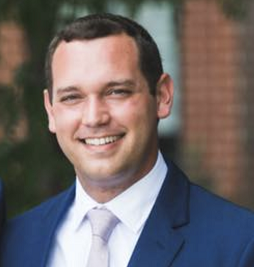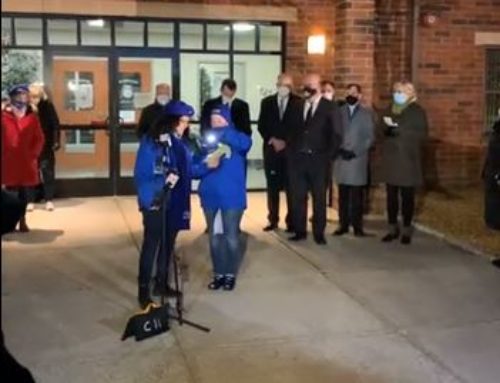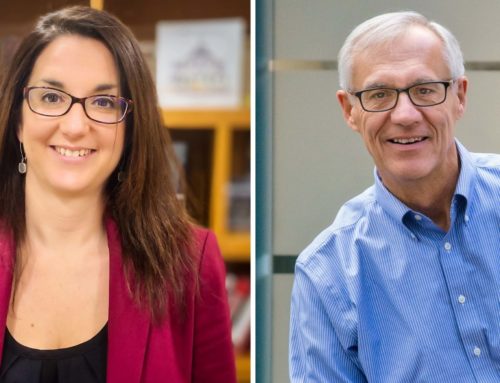Peter Dunn was named as the City of Worcester’s chief development officer in May of 2020. In his first year and a half, he was able to work through a pandemic, connect with people and local businesses, and ensure that the city continued to prosper.
Dunn had previously served as the assistant economic development officer and prior to that held the role of business and commerce development coordinator in the Executive Office of Economic Development.
“I started with really focusing on small business development and entrepreneurship,” Dunn said. “I got more involved with various special projects and then came into the position that I’m in now, which is great and pretty exciting.”
Dunn came into the role at a time when Worcester had a “great trajectory,” as he called it. Going into 2020, Worcester was predicted to continue its growth both in population and economically.
But then the pandemic hit, and businesses and the city as a whole needed more support.
Dunn said that one of the best responses to the pandemic was the regular briefings the City Manager and Mayor gave to ensure that the people of Worcester were up-to-date with the most timely and pertinent information.
“People looked at Worcester and saw what we were doing with that and did the same thing,” Dunn said.
Dunn’s team was one of the first in New England–and the primary in Massachusetts–to launch a small business resiliency grant. This allowed for the federal money to be turned around to support the local businesses as soon as possible. Organizations used the money to pay for utilities, inventory, stifle their loss of revenue, and overall just ensure that they were able to keep their doors open.
“I think that was really a lifeline to so many of the small businesses in our community…I think one of the things that was really important was moving money quickly,” Dunn said. “We know that a lot of communities ended up modeling their assistance after ours.”
Other communities in both Massachusetts and beyond reached out to Dunn and his team for support as to how to structure the business resiliency plan and ensure they were meeting the eligibility requirements set out by the federal government. Dunn said that he wanted the programs to actually help the businesses within the cities and not have money just sitting there.
Worcester processed 271 grants, totalling just under $2 million over two rounds of the program between April and July. Dunn said to make sure they were being as responsive as possible, some of the people on his team were working 12 hour days.
“Small businesses are the backbone to any local economy,” Dunn said. “So many of these places are also the staples of our community. You look at the local coffee shop or businesses that are passed down to generations throughout the years…It’s really important that we do what we can to ensure that they can keep their doors open.”
In addition to the business support, Dunn helped to launch a local rental assistance program for housing. He said about $1.9 million have been allocated. While some local agencies were already dispensing federal funds, Dunn made agreements with five of the agencies so that people didn’t have to scramble for resources. “If somebody was in need of housing assistance, it was almost a one-stop-shop,” Dunn said. “A lot of the agencies were already dealing with folks at the grass roots level all the time, so being able to give them the tools to best assist their clients rather than creating a separate structure. I think that really worked well, and it certainly filled the gap.”
With these different support initiatives, Worcester was able to still work through the pandemic and prosper,
“Despite all of the challenges that the pandemic has brought on the community, Worcester has really continued with that momentum and trajectory that we had,” Dunn said. “I think that was really validated through the recent census figures that were announced.”
“People are seeing Worcester as a great place to live and work and play and raise a family,” Dunn said. “It’s really good to see that in the numbers.”
The most recent census results showed an increase of 14 percent in the city’s population from a decade ago. Worcester had the most growth among New England cities with more than 100,000 residents.
Dunn wants to make sure that coming out of the pandemic, in what he called a “recovery phase,” the city makes long-term sustainable impact with investments. He also wants to have equitable housing, mentioning that there are some buildings transforming into affordable units for mixed incomes.
“We’re still working on continuing to address some of the effects of the pandemic but also maintain additional growth opportunities that we’ve been pursuing since before the pandemic,” Dunn said.
Dunn believes that one of the main initiatives that came out of the pandemic to benefit the City of Worcester was the group, Worcester Together. The group, which was started as a citywide partnership through United Way of Central Massachusetts, is meant to support the COVID-19 response, relief, and recovery. Dunn called it a “shining example” of how communities can come together to support one another and respond to the most critical needs.
“It was really making sure that nobody was left behind as we were trying to address all of the different complicated effects of the pandemic,” Dunn said. He added that the Worcester community historically works well together and fights to make sure no one is left behind.
“It just shows the type of community and collaboration that Worcester is known for,” Dunn said. “Through the Worcester Together group and through our local-based partnerships, I think that’s really what made a difference in making sure that some of these mom and pop businesses knew that the program existed, knew the resources were available, and were able to get the application across to us. We’re only as good as our partners.”






Leave A Comment